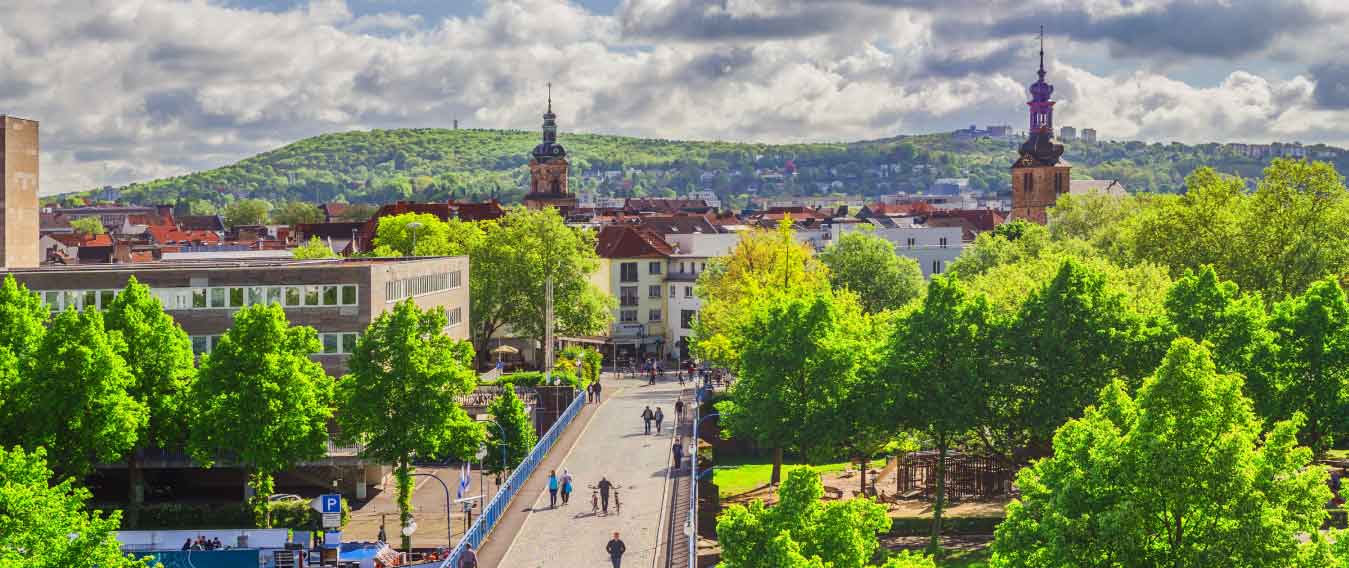ENGIE’s solution for these German cities: low-carbon, decentralised heat and electricity production systems
In Saarbrücken, Saarland, ENGIE – through its subsidiary Energie SaarLorLux in a joint venture with its partner Stadtwerke Saarbrücken- is building a new combined power plant producing heat and energy from natural gas. The 50 MW plant will enable coal-based power generation to end in 2022. By completely reorganising the heat supply of 11,000 customers, the city has reduced its annual CO2 emissions by about 60,000 tonnes!
In the city of Gera, in Thuringia, ENGIE has already replaced two old gas thermal power plants. The heating network’s 19,000 customers are now supplied by nine gas cogeneration units and six gas boilers. By replacing the old production plants and renovating the distribution network, the city saves 50,000 tonnes of CO2 emissions every year.
“District heating has great potential for combating climate change. With modern, decentralized power plants, closer to their customers, ENGIE enables cities and regions to significantly reduce their CO2 emissions.”
Paulo Almirante, ENGIE’s Executive Vice President and Chief Operating Officer
Key Figures
- 110,000 tonnes of CO2 saved every year by replacing old production plants in the two German cities of Saarbrücken and Gera, and by renovating Gera’s heating network.
- 30,000 homes benefit from new, local and cleaner heat production units

